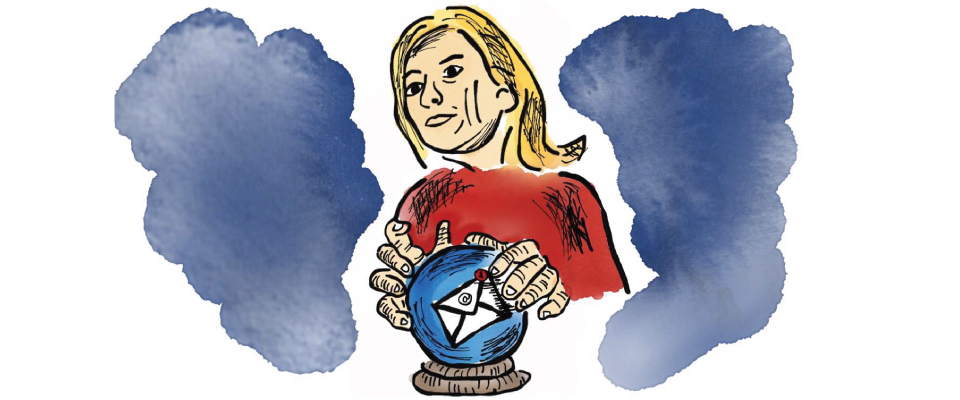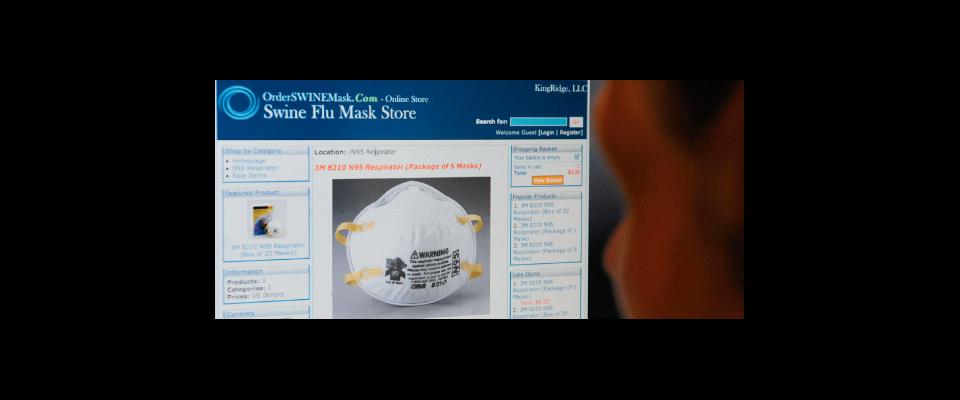Yeah, Hillary’s email missteps were deeply inept. Still, in the end, the FBI cleared her of any criminal malfeasance, though it did deem her “extremely careless.” And let’s face it: Hillary wasn’t the only government bigwig to flub Email 101. Former Secretaries of State Colin Powell and Condoleezza Rice also sent emails on less-than-secure accounts. So really, how bad was Hillary’s faux pas?
Depends on who you talk to. UC Berkeley associate history professor Daniel Sargent, for one, thinks FBI Director James Comey made the right call last week when he declared Clinton’s actions didn’t really warrant criminal prosecution.
“As I understand the relevant criminal statutes, a malevolent motive or a systemic disregard for proper security protocols would be required for an indictment,” Sargent says. “I think it’s clear that the nature of her infractions don’t meet either threshold.”
The culture at State is very different. The formative training that diplomats receive is different than the formative training for people in the military and intelligence services, notes history professor Daniel Sargent.
Moreover, says Sargent, Clinton’s actions must be viewed from the perspectives of both government culture and current technology. The State Department, he says diverges from other branches of national security, such as the FBI, the Department of Defense or the Department of Homeland Security.
“The culture at State is very different,” says Sargent. “The formative training that diplomats receive is different than the formative training for people in the military and intelligence services. This is not a critique—different priorities and skill sets are involved. Most diplomats are not veterans. Their functions differ from people in the military and intelligence. The CIA, for example, exists to collect and safeguard privileged information. Diplomats exist to use that information to further national interests, but that invariably involves sharing it—even, sometimes, with potential adversaries. Different ways of thinking are involved.”
So while Clinton may have been remiss in safeguarding classified information, Sargent says such laxity is by no means unusual at State. He notes the past Secretaries of State Powell and Rice also sent classified emails on less-than-secure servers.
“The behavior of past Secretaries of State should be acknowledged,” he says. “It’s germane.”
Furthermore, says Sargent, the federal government has not adapted security practices “to how people live their lives in 2016. The government still runs on Windows 95, but everybody uses an iPhone in their professional lives. The Secretary of State works 14- to 16-hour days, and state-of-the-art technology is critical for doing the job well. Had the government provided Clinton with communications tools as efficient as those from the private market, she undoubtedly would have used those tools.”
All government employees, says Berkeley (Boalt) Law professor John Yoo, “… know that the official department system is to be used for official communications.”
Not all academics share Sargent’s opinion, of course. Berkeley (Boalt) Law professor John Yoo notes that a State Department Inspector General’s report “… describes the Powell and Rice cases [of emailing classified documents] as unintentional and few in number. There is a significant difference with the Clinton case. Clinton deliberately created a parallel, off-the-books email system designed to evade the State Department system.”
All government employees, says Yoo, “… know that the official department system is to be used for official communications. My sense is that Powell and Rice were not using private email systems to conduct public business in any systematic way.”
Yoo, an unabashed conservative, might be influenced by his political POV in weighing Hillary’s culpability. He is best known for his tenure with the U.S. Department of Justice’s Office of Legal Counsel during George W. Bush’s presidency, when he authored memos maintaining that enemy fighters held at Guantanamo Bay did not qualify as prisoners of war under the Geneva Conventions, the president was not bound by the War Crimes Act of 1996, executive authority allowed interrogators to use water boarding on captives during war, and warrantless wiretapping was legal.
“In my view, the FBI report was utterly damning in several dimensions,” says political science professor Jack Citrin.
But political science professor Jack Citrin, the Director of Berkeley’s Institute of Governmental Studies, also was forthright in his criticism of Clinton’s online habits.
“In my view, the FBI report was utterly damning in several dimensions,” says Citrin. “The alleged acts by Powell and Rice were minuscule by comparison. The number of messages [containing classified material] they sent were very few in number. It’s instructive to note that after the report from [FBI Director James] Comey, the Clinton people never said anything to the effect of ‘Oh, it’s done all the time. Because clearly, it [emailing classified information on insecure systems] is not done all the time.”
Clinton’s missteps have been compared to those of four-star general David Petraeus, who narrowly missed felony prosecution by the FBI and the U.S. Department of Justice for emailing classified material to Paula Broadwell, the co-author of his biography and his partner in an extramarital affair that ended his military career.
“The main difference appears to be that Petraeus said he knew he was violating the law and Clinton hasn’t said that,” Citrin says. “Whether that’s the difference between an offense that’s indictable and one that isn’t, I’m not qualified to say. I’m not an attorney.”
While it’s clear that Hillary has escaped the most serious possible consequence from her gaffe—prison—ongoing repercussions are inevitable.
“I suspect in the end that it will just be part of a lot of mutual mudslinging,” says Citrin. “Bloomberg News observed that the Clintons are always under attack, and they always play by their own rules. I tend to agree with that, and frankly, neither is good for the commonweal. In this particular case, it may give voters serious pause about Hillary.”
While Yoo emphasizes that Clinton should have been prosecuted, he expresses understanding for the FBI’s position and its ultimately expedient conclusion.
“We cannot help but think that Comey made his decision to keep the FBI out of politics,” Yoo wrote recently in the National Review. “There should be more sympathy for this decision, though not because of … the legal merits. The American people can decide … whether the facts show that Clinton violated the law, and they can impose a sanction of rejecting her at the ballot box this November.”
Sargent thinks that the email imbroglio may indeed exert an influence in November. And that could come as a big surprise to people, much as the recent Brexit vote confounded the British.
“The polls failed to predict the Brexit outcome, and it appears that may have been due to the possibility that voters don’t always respond reliably to a pollster’s questions when those questions imply a moral critique,” Sargent says.
“From an historical perspective, secrecy and duplicity aren’t unusual in chief executives. It can be argued that some of the most effective presidents in history have been slippery and duplicitous. Still, it could well dispose many people to vote for Trump even if they won’t admit it to a pollster,” notes Sargent.
With Brexit, a “leave” vote was widely characterized as anti-immigrant, a position generally considered retrograde in British culture, said Sargent. But there were a number of smoldering resentments—over economics, class, establishment politics, and no doubt, immigration policy—that ultimately compelled a majority of Britons to vote in favor of leaving the EU. They just felt reluctant to advocate their views openly.
Similarly, many Americans may be loath to publicly champion the bombastic and provocative Trump, even as they secretly admire him.
“The emails seem to be corroborating the view that Hillary and Bill are untrustworthy and prone to bend the rules,” says Sargent. “From an historical perspective, secrecy and duplicity aren’t unusual in chief executives. It can be argued that some of the most effective presidents in history have been slippery and duplicitous. Still, [the email issue] could well dispose many people to vote for Trump even if they won’t admit it to a pollster. The situation is exceedingly complex, especially given Trump’s unique qualities as a candidate. It makes the polls less reliable, and the outcome harder to predict.”




















